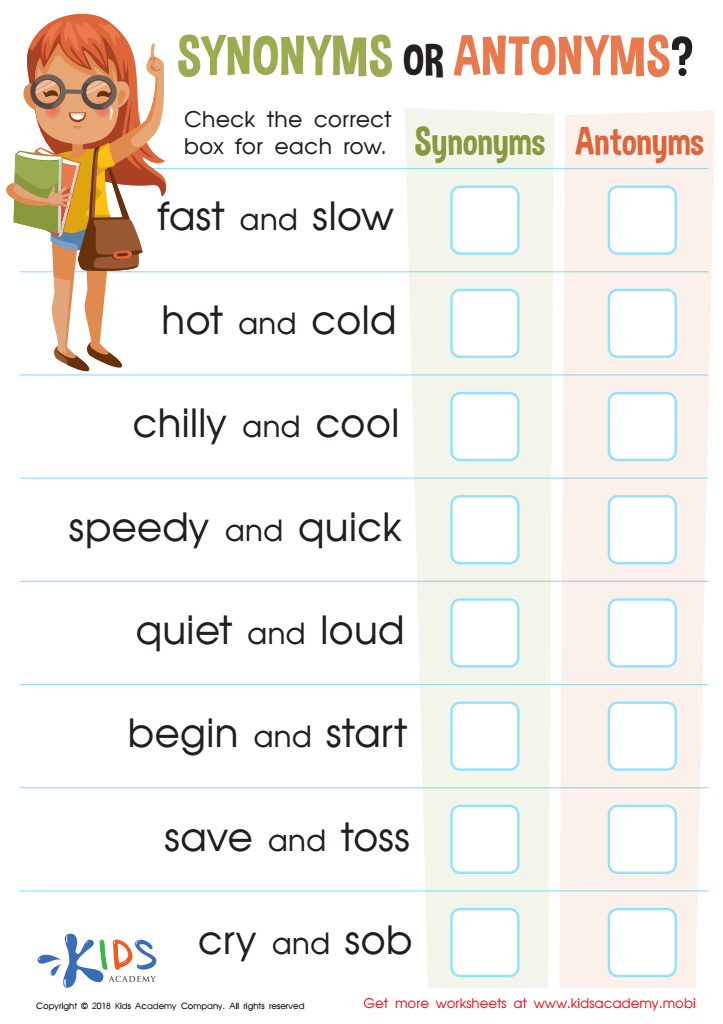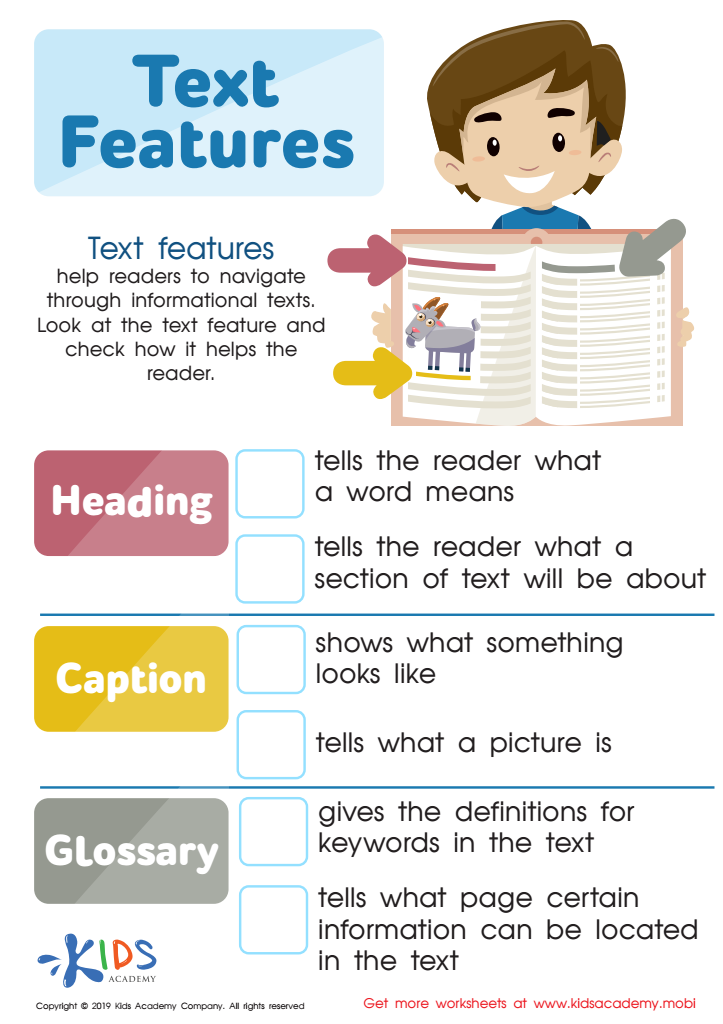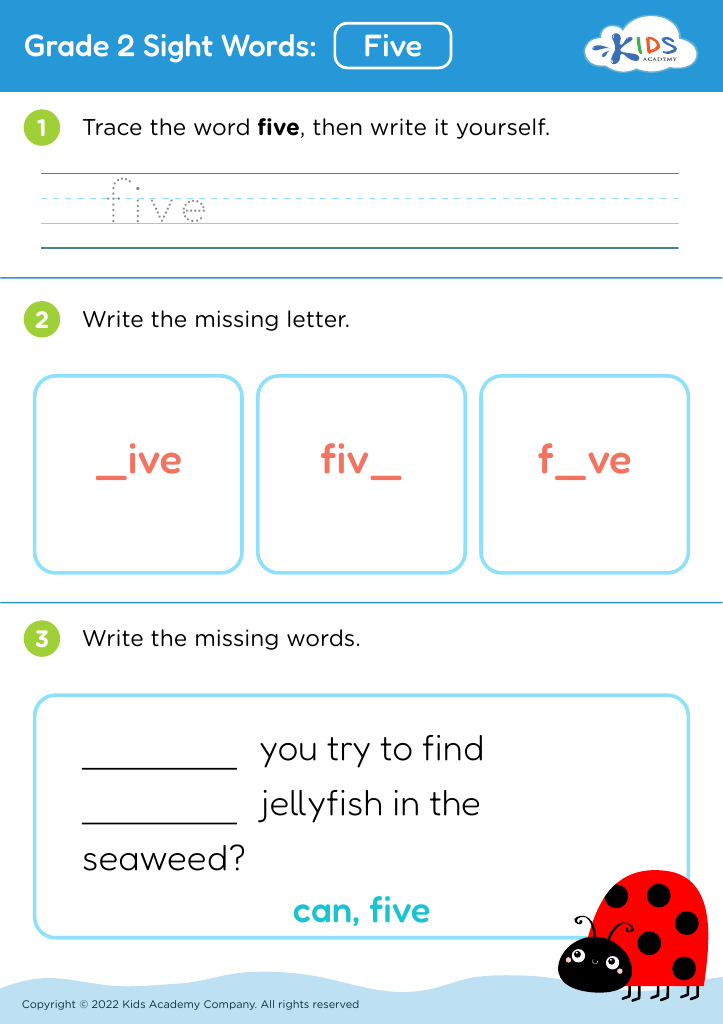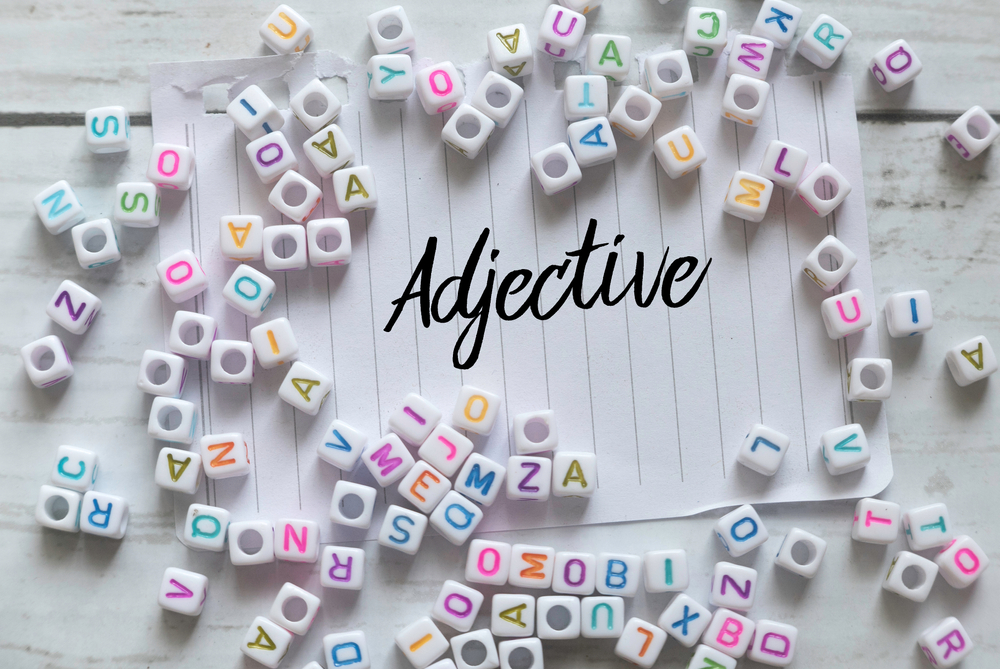Enhance critical thinking Reading Worksheets for 8-Year-Olds
3 filtered results
-
From - To
Enhance your 8-year-old’s critical thinking skills with our dynamic reading worksheets! Our expertly designed activities stimulate young minds through engaging texts and thought-provoking questions. Each worksheet nurtures comprehension, vocabulary, and analytical skills, helping children confidently identify themes, make inferences, and draw conclusions. Perfect for classroom and at-home learning, these resources foster a love for reading while developing essential cognitive abilities. Equip your young learner with the tools needed to become a skilled reader who can think independently and critically. Dive into our collection today and watch your child's reading and reasoning abilities soar!


Synonyms or Antonyms: Assessment Worksheet


Text Features Worksheet
Parents and teachers should prioritize enhancing critical thinking reading for 8-year-olds because this developmental phase is crucial for establishing strong cognitive frameworks. At this age, children transition from learning to read to reading to learn. Encouraging critical thinking involves asking them questions that go beyond literal comprehension, such as predicting outcomes, inferring meanings, and making connections to their own life or the world around them. This practice not only improves reading skills but also builds a foundation for lifelong learning.
Critical thinking in reading fosters independent thought, enabling children to assess information, discern facts from opinions, and develop reasoned arguments. These skills are essential as they progress through more complex subjects and begin to navigate the vast realm of information available in today’s digital age. It promotes creativity, curiosity, and problem-solving abilities – qualities that are highly valuable across all areas of life.
Furthermore, engaging critically with texts nurtures a love for reading by making it an active, rather than passive, activity. When children feel challenged and engaged, they are more likely to view reading as a rewarding endeavor. Therefore, investing in critical thinking reading strategies for 8-year-olds not only enhances academic performance but also cultivates thoughtful, inquisitive individuals prepared for future challenges.

 Assign to My Students
Assign to My Students





















